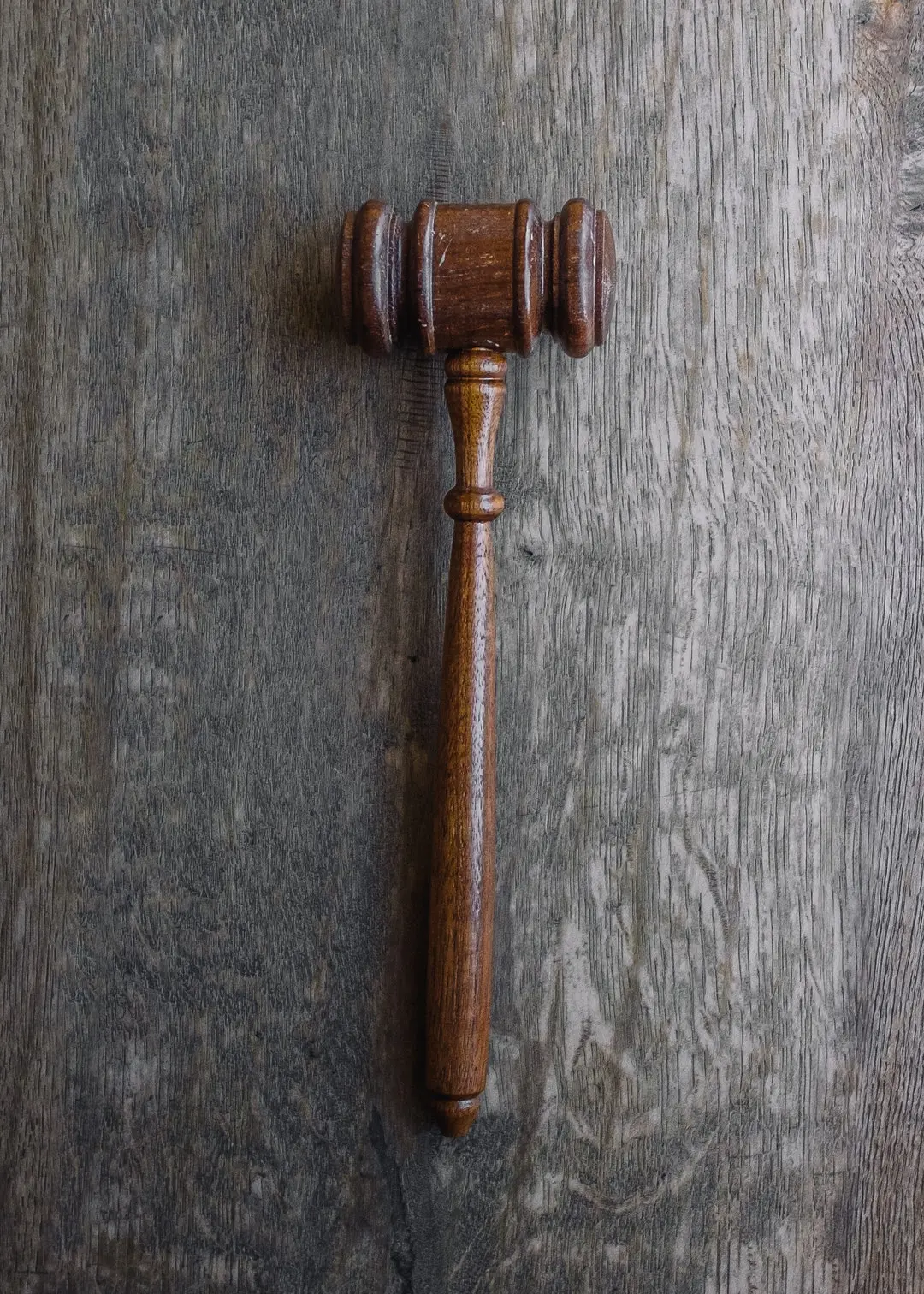So you’ve come out on the bad end of an audit with the IRS. You strongly believe that you have followed the right course of action with your taxes and you have the documents to back it up but what can you do?
After appealing your audit it’s starting to look like you’ll be getting into a dispute with the IRS. So what can you expect?
Well, 90% of the time you will end up reaching a settlement out of court with the help of a trusted tax attorney because a trial benefits neither party.
However, certain cases will make their way into the complicated world of tax court litigation. What can you expect from the IRS and the tax court judge once it goes to trial?
We’re going to walk you through our guide to tax court proceedings and everything you need to know.
What Is Tax Court?
The United States Tax Court is a court established by Congress under Article 1 of the constitution. It is compiled of 19 presidentially elected members who are based in Washington but go out to all 50 states and the ‘court’ itself does not get tried before a jury.
The court is performed by senior and special trial judges with expertise in tax laws to ensure that taxpayers are fairly assessed on what they owe.
For any disputes under $50,000, the taxpayer can choose to have their case conducted by the small tax case procedure which has slightly different proceedings. For all cases above that amount, it will be conducted in the regular tax court.
When Does an IRS Dispute Get Taken to Tax Court?
Essentially when you go to US Tax Court you are suing the IRS in court.
When called by the IRS for an audit you have two clear options. You can either agree with them or not. Agreeing with them closes the case.
If you disagree with them and choose to appeal then the IRS will send you a 90-day letter or “notice of deficiency” that outlines the required adjustments to your tax return. You will then have the 90 day period to file a petition with the tax court. If you do not file a petition then the IRS will classify your response as agreement.
When you file a petition there is a fee of $60; the underlying tax payment that is being disputed is postponed until the court decision has been made.
Who Should You Take to Tax Court Litigation?
It is worth noting that taxpayers are actually permitted to represent themselves in the US Tax Court if they so wish. However, we strongly advise you to get yourself representation by an attorney that has been admitted to the bar of the Tax Court.
You want to present a solid case to the tax court and the best way to do this is with an experienced practitioner on your team. Remember that 90% of cases will be settled before going to trial and you want to secure the best settlement.
Taxpayers are also allowed to present witnesses as in other court proceedings but you should be very selective and precise with who you choose to call.
The Tax Court Litigation Process
Now that we’ve covered when a case would be referred to the Tax Court, let’s take a look at how the proceedings are conducted.
How Does the Process Work?
From the 90 day letter to your court decision we’ll walk through the steps which you will follow:
Notice of Deficiency
This is the 90-day letter we discussed earlier, most commonly the notice of deficiency although in some cases other jurisdictional notices exist.
Petition Filing
File your petition for court within the 90 days to start proceedings – the time cannot be changed or waived for any reason. Once again if you miss this window they will assume you agree with their decision.
Informal and Formal Discovery
Discovery applies to any non-privileged information that pertains to the case. Discovery protocol is usually a bigger burden on the taxpayer than the IRS and usually to the IRS’ detriment because of the taxpayer’s knowledge and documentation. You will be privy to the large marjority of information requested during this stage.
The informal discovery stage usually begins with the IRS sending a Branerton letter to the taxpayer requesting particular documents, admissions or information. Then the taxpayer responds with their own letter and this goes on for several rounds to determine all information.
Only once informal discovery via consultation and communication has taken place can the formal discovery stage proceed.
Formal discovery mechanisms used by the United States Tax Court include depositions, written interrogatories, electronically stored information and requests for admission. This stage can also be limited by the judge for various reasons.
In very extraordinary cases the court can order depositions without the consent of the parties although this is unusual. Most depositions require the consent of both parties involved in the case.
You as the taxpayer will generally hold most of the documents required but you should always request at least one document from the IRS. This document is the IRS “administrative file,” which should typically include the following documents:
- Tax returns
- Taxpayer and third-party correspondence
- Transcripts of account
- Revenue agent’s report
- IRS Appeals materials (including Protest and Appeals Division reports)
- The statutory notice of deficiency
- Claims for refund and IRS response
- Statute of limitations extensions
Remember this is both parties chance to explore all possible information pertaining to the case and you want to be as prepared as possible. Again an experienced attorney will be well versed in what to request and what to look for in these cases.
Motions
In US Tax Court proceedings, any motions must be made in writing unless they are made during a hearing or trial. Motions must include the grounds for seeking the order and the expected relief.
Motions can include:
- Motion to Strike
- Motion for Summary Judgment
- Motion for More Definite Statement
- Motion to Dismiss for Lack of Jurisdiction
Pre-Trial Procedures
Pre-trial procedures may include stipulations, the settlement process, appeals, and pre-trial conferences.
Stipulations
Both parties and the government negotiate ‘stipulations’ on all undisputed matters. These can include facts, settlement of issues, law to be applied, application of the law to facts and documents. Either party can object to part of a stipulation on various grounds such as facts in dispute or stipulation is vague.
There is no need for a trial when the case is fully stipulated.
Trial Procedures
You are now well and truly into the Tax Court proceedings and provided no settlements have been reached the case will now progress to trial.
Pre-trial Memoranda
In certain cases, the judge will order certain actions in advance of a trial. One of these actions is a pre-trial memorandum which must be submitted no later than 14 days before the start date of the trial. The pre-trial memorandum should include the following information and documents:
- Statement of disputed amounts
- Case status such as probable settlement/probable trial
- Trial time estimate
- List of motions
- Status of the stipulation of the facts
- Statement of issues for decision
- Witness list and summary of testimony
- Summary of facts
- A brief synopsis of legal authorities
- Evidentiary problems list
Once the pre-trial procedures are completed then you will proceed to the full trial in the United States Tax Court.
Post Trial Procedures
It’s not a stage that occurs in all cases but sometimes the judge can order simultaneous or point-by-point post-trial briefs. These have dictated contents according to a brief and include statements, proposed findings, arguments, and signatures.
Tax Court Rulings
We’ve had an overview of the proceedings you can expect when going to trial, but what happens next?
Let’s talk about Tax Court decisions and rulings because they work slightly differently from other court cases.
When Can You Expect a Decision?
Almost all of the disputes raised in the United States Tax Courts are settled by mutual agreement without going to trial.
However, if you do go to trial then you should expect a report to be issued by the presiding judge that outlines the findings of fact and an opinion on the case. The case is then closed in accordance with that opinion by the entry of a decision.
Unlike other court cases, the decisions reached by Tax Court can take up to 1 or 2 years depending on the complexity of the case. This is not an immediate decision or ruling and you need to be prepared to wait it out. Disputes conducted under the small tax case procedure can receive a decision more quickly as they are usually way less complex.
Can You Really Win at Tax Court?
You should have provided your best case at an audit in order to reach an agreement and hopefully a settlement prior to going to court. For that reason, the 10% of cases that go to court are usually settled in favor of the IRS.
It is better for all parties involved (except perhaps for your attorney) to settle during the audit instead of going to court. That is why it is absolutely crucial to get the best representation you can to present your case in the strongest possible light.
Put it simply, you only know what you know and the attorney will be prepared for anything the IRS can throw at them. You are not going to succeed if you try to go this alone without experience and expertise on your side.
What Happens When the Tax Court Rules Against You?
In small tax cases, there is no option for appeal but in the regular Tax Court, you have 90 days to lodge your appeal.
Usually what you can expect is for the ruling to determine whether you need to pay two different types of payments – the owed amount and a percentage penalty.
The judge can rule that you need to pay the outstanding amount but not the penalty for example. The judge could also increase the penalty if they decide that you have brought a case to trial that has been a waste of time.
Should you need to pay back the disputed amount you can deduct your legal fees for the trial if the case is related to your business taxation. If it is personal then you cannot deduct these fees from the amount.
You can also file a motion for the IRS to reimburse you for attorney fees if you believe they have blatantly disregarded your records and evidence.
To settle or trial?
That wraps up our comprehensive overview of United States Tax Court litigation and what to expect from the moment you file your petition.
Ultimately, both parties would hope to avoid going to trial and try to negotiate a settlement before it reaches that point. Regardless of whether you get to trial or manage to negotiate a settlement beforehand, one thing is clear…
You will need a great tax attorney on your side to secure the best possible outcome. The IRS and Tax Court judges know their stuff and you need to put your best foot forward to have proceedings end up in your favor.
That said, the IRS recognizes that people willing to dispute their findings and present their arguments are serious about their position and they are looking to negotiate an acceptable agreement.
We hope you found our guide to Tax Court litigation helpful. Stay up to date with the latest information by checking out the 2019 tax changes you need to know about.





